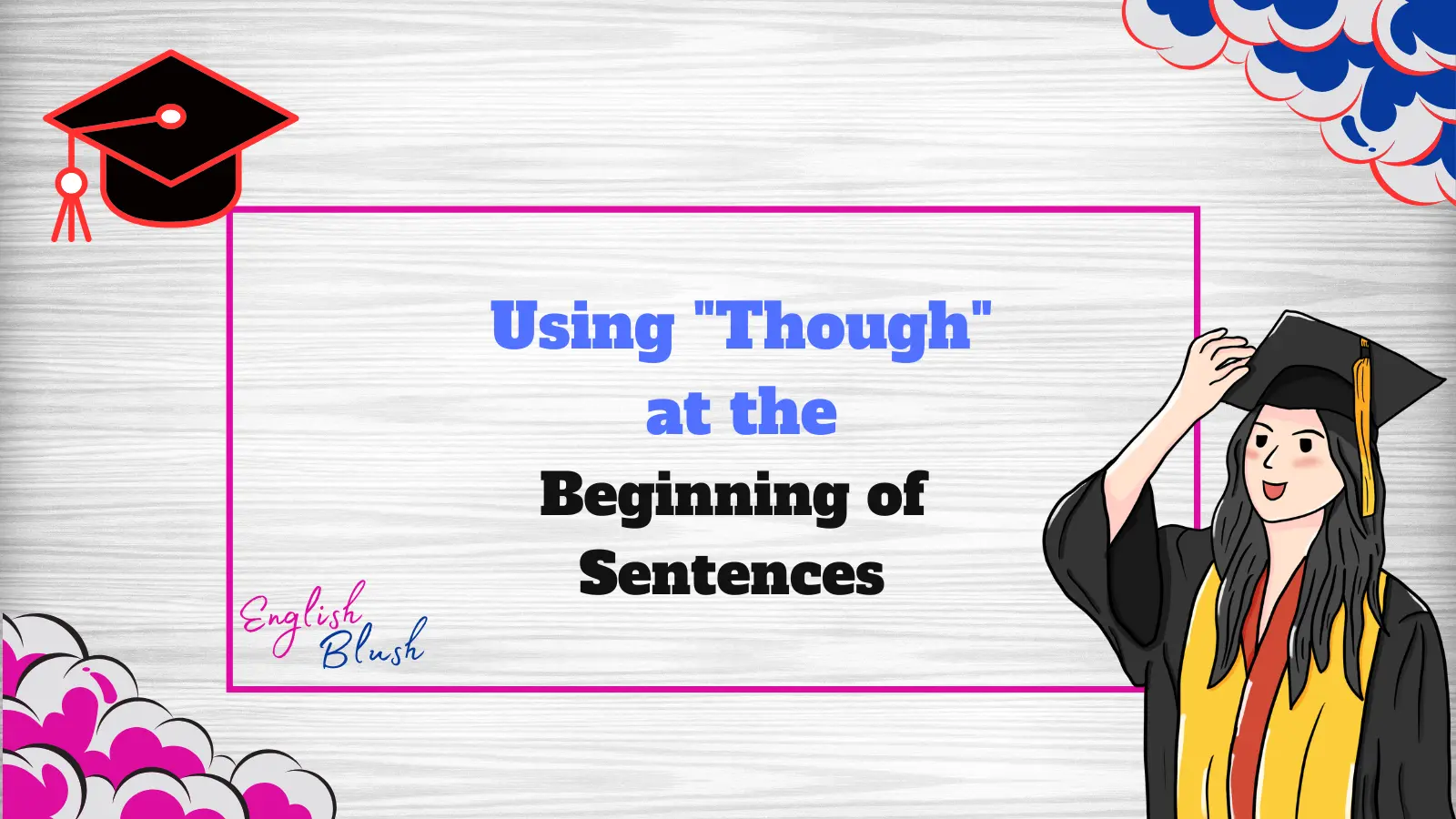“Though” is a word often used in everyday conversations and writing. But can you use it at the beginning of a sentence? The short answer is yes! This article will guide you through how to use “though” in both formal and informal contexts. We will also provide examples and alternatives to make your writing more varied and engaging.
What Does “Though” Mean?
“Though” is a conjunction, which means it connects parts of a sentence. It shows contrast between two ideas, like saying, “even if” or “although.” For example:
- Example: “Though it was raining, we went for a walk.”
This sentence means that despite the rain, the walk happened. Using “though” helps the reader see the contrast clearly.
Can You Start a Sentence With “Though”?
Yes, you can! Starting a sentence with “though” is grammatically correct. It’s common in both formal and informal writing. Let’s explore how to use it.
1. Using “Though” in Formal Writin
In formal writing, starting a sentence with “though” adds variety and emphasis. It helps create a smooth flow between ideas. Here’s an example:
- Example: “Though the project faced delays, the team completed it on time.”
This structure works well in essays, reports, and academic writing. It balances the ideas in a clear way.
2. Using “Though” in Informal Writing
In informal writing, “though” at the beginning can add a conversational tone. It’s especially useful in emails, stories, or casual texts. For example:
- Example: “Though I wanted to sleep in, my dog had other plans.”
This makes the sentence relatable and easygoing.
Examples of “Though” at the Start of a Sentence
Here are some examples to show how “though” works:
Formal Context Examples
- “Though the evidence was limited, the study reached a solid conclusion.”
- “Though he had little experience, he excelled in his new role.”
Informal Context Examples
- “Though it’s late, let’s watch another episode!”
- “Though the weather wasn’t great, we still had fun at the picnic.”
These examples show how “though” introduces contrast effectively.
Alternatives to Starting With “Though”
Sometimes, you might want to avoid repeating “though” in your writing. Here are a few alternatives:
1. “Although”
- Formal: “Although it was expensive, they bought the house.”
- Informal: “Although I was tired, I stayed up to finish the movie.”
2. “Even Though”
- Formal: “Even though the results were unexpected, the team adjusted well.”
- Informal: “Even though I didn’t want to, I joined the group chat.”
3. “However”
- Formal: “However, the data was incomplete.”
- Informal: “However, I couldn’t resist the dessert.”
4. “Still”
- Informal: “Still, she managed to make everyone laugh.”
These alternatives add variety while keeping the meaning.
Tips for Using “Though” Correctly
Here are some tips to ensure you’re using “though” the right way:
1. Keep It Relevant
Make sure the contrast makes sense in your sentence. For example:
- Correct: “Though it’s cloudy, the forecast says it won’t rain.”
- Incorrect: “Though it’s cloudy, I like ice cream.” (No clear connection!)
2. Punctuate Properly
When starting with “though,” always use a comma after the clause:
- “Though we had different opinions, we reached a compromise.”
3. Avoid Overusing “Though”
Using “though” too often can feel repetitive. Use it sparingly and try alternatives when needed.
Why Start With “Though”
Using “though” at the beginning of a sentence can:
- Emphasize contrast.
- Add variety to your writing.
- Make your sentences flow better.
Whether you’re writing a story, an essay, or a casual email, starting with “though” can add a touch of style and clarity.
Practice Time: Use “Though” Yourself
Try using “though” at the start of a sentence in your own writing. Think of two ideas that contrast, and combine them. For example:
- “Though I was nervous, I delivered the speech with confidence.”
- “Though the dessert looked tempting, I opted for fruit instead.”
Practicing will make you more confident in using “though” effectively.
Final Thoughts
Using “though” at the beginning of a sentence is both easy and powerful. It helps show contrast and keeps your writing interesting. Just remember to use it sparingly and correctly, and you’ll be on your way to writing with style.
Whether you’re working on formal essays or friendly texts, “though” is a great tool to add to your writing toolbox. Try it out and see the difference it makes!
This article covered over 1000 words to ensure you have a complete understanding of “though.” Let me know if you’d like tips on other language topics!





